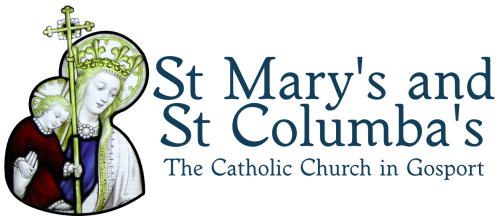The Eucharist

The Eucharist is the sacrament in which we receive the Body and Blood of Christ. The Church teaches that Christ is really present in the bread and wine that have been consecrated by the priest at Mass. Although the bread and wine still look and taste like bread and wine, the substance, what is actually there, has changed.
The roots of the Eucharist are in the Jewish Passover meal. This is the meal which commemorates Israel’s delivery from oppression and slavery in Egypt. At the Passover a perfect Lamb was sacrificed to God.
As Jesus celebrated the Passover at his last supper with the apostles, He blessed, broke and shared with them bread and wine, declaring that it was His body and blood. He promised that He would truly be with them when they did likewise and shared bread and wine together in memory of Him. In this way, Jesus made himself the new Lamb of God, who sacrificed himself for us on the cross.
The Mass is the new Passover, with Jesus offering His own body and blood so that we, His present-day followers, might go free. For this reason, as well as being a sacred meal, the Eucharist is also a link with Jesus’ death. When we participate in the Mass together with our fellow believers and receive Him in the Eucharist, Jesus becomes truly present to us in the consecrated bread and wine. We receive his very life and are nourished by this spiritual food.
Receiving Communion According to Canon Law
- “A person who is conscious of grave sin is not to … receive the body of the Lord without previous sacramental confession unless there is a grave reason and there is no opportunity to confess; in this case the person is to remember the obligation to make an act of perfect contrition which includes the resolution of confessing as soon as possible” (Code of Canon Law, Can. 916).
- “A person who is to receive the Most Holy Eucharist is to abstain for at least one hour before holy communion from any food and drink, except for only water and medicine” (Can. 919 §1).
- “After being initiated into the Most Holy Eucharist, each of the faithful is obliged to receive Holy Communion at least once a year. This precept must be fulfilled during the Easter season unless it is fulfilled for a just cause at another time during the year” (Can. 920 §1§2).
Summary and Exhortation
- The Eucharist is the “the source and summit of the Christian life” (CCC 1324).
- The Real Presence: At Mass, the bread and wine are changed into the Body and Blood of Jesus Christ. This is not a chemical or physical change because the outward, sensible appearances of bread and wine remain, but under those appearances of bread and wine, Jesus is truly present in the Eucharist (CCC 1374).
- The Eucharist as sacrifice: The Mass is a sacrifice because it re-presents (makes present) the sacrifice of the Cross, because it is its memorial (CCC 1366). At every Mass, we are called to join our lives in union with Christ’s gift of himself to the Father (CCC 1368).
- As a biblical memorial, the Mass makes present Christ’s sacrifice on the Cross in order to apply the fruit of his sacrifice to our lives (CCC 1366).
- Communion: Jesus loves us so much he desired to come to us in Holy Communion. When we receive the Eucharist, we are receiving the very Body and Blood of Jesus into our souls (CCC 1391).
- It is important to take time for loving thanksgiving with Jesus after we receive him in Holy Communion, which nourishes and strengthens our life in Christ (CCC 1391-92).
- Although all are invited, not all are ready to receive the Eucharist, either because of serious sin that has not been brought to the Sacrament of Reconciliation or for a lack of full communion with the Catholic Church (CCC 1400).
